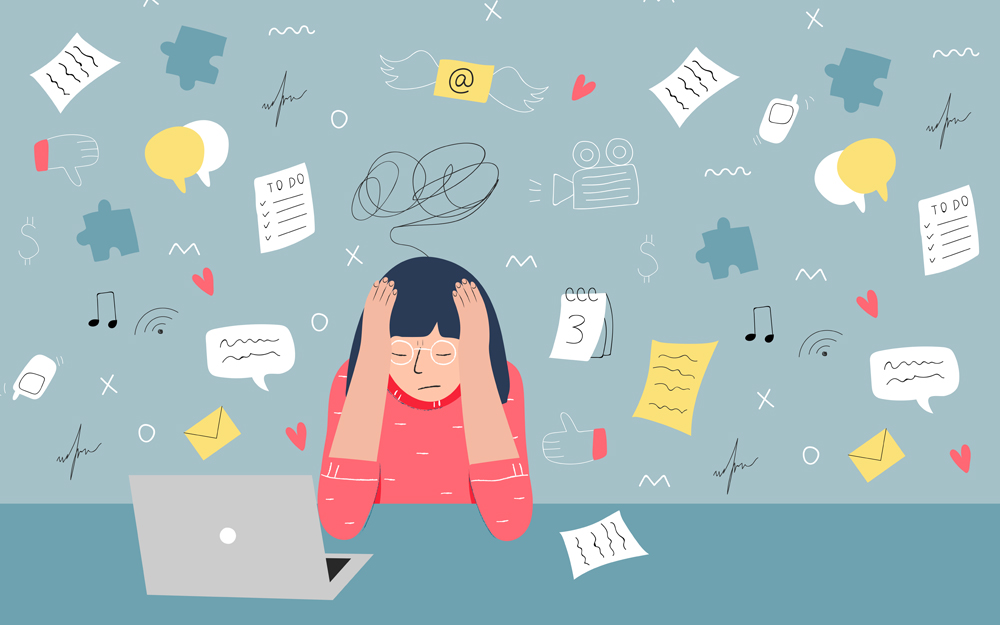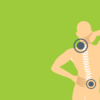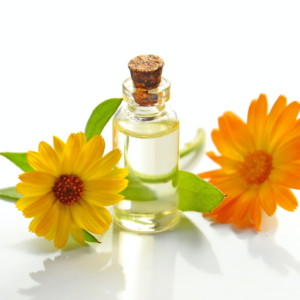How to Manage Stress?
It is extremely normal for us to feel anxious from time to time. Fortunately, there are a lot of things we can do to help us feel a bit better. There is a big difference between feeling a bit stressed every now and then and ongoing anxiety. When anxiety takes its toll, we need to consider talking to a mental health professional.
There are many factors in our busy lives that can contribute to us feeling stressed. Things like financial troubles, work deadlines, congested traffic or arguments can cause stress. When our bodies try to deal with negative pressure, the result is to feel stressed and this is a very natural reaction. Everyone is different. One person may feel very stressed about something while another will not. It depends on your personality, past experiences, stage of life, cultural background and the support we have around us.
When dealing with stress or illness, it is our immune system that kicks in with inflammation to protect us. Unfortunately, as a permanent defence, this is not healthy. Everyone is going through extraordinarily stressful times and its important that we keep our immune systems healthy and inflammation under control to provide stress reduction in our bodies. Even though inflammation is part of our bodies built-in defence against injuries and invading bacteria, we can suffer from too much inflammation. In these trying times, everyone is asking the question: How to manage stress? We have outlined a few suggestions that might help when dealing with stress.

Diet
- Diet plays a big role in preventing too much inflammation in our bodies. So when looking at how to manage stress, we need to look at the way we eat. Even low-grade inflammation can put us at risk of heart disease, Alzheimer’s disease and different types of cancer. Other causes can contribute to inflammation. Your Genetics or environment and, of course, dealing with stress can be the root of the problem. But so can our diet. By eating inflammation-fighting foods, we can help keep things in check. Eating well will help with stress reduction. Some things that will help are: Reduce sugar, processed foods and refined flour.
Diet is really important for our wellbeing. A healthy diet can make us feel stronger and healthier and better at being able to handle stress.
Quality Fatty Acids and healthy foods
- The next step in our fight for stress reduction is to Choose Quality Fatty Acids as every cell membrane in our bodies contains fatty acids. Omega 3 fatty acids may help lower inflammation and promote heart health. Omega-3s are found in leafy green vegetables and walnuts, whole soy foods, fish, flaxseeds, canola oil and grass-fed meats.
- It’s important to choose our fats wisely. This means use unprocessed fats, not heat-treated oils. Use cold-pressed oils, preferably organic canola or extra virgin olive oils. It also helps to use lower temperature when cooking to minimize free radical formation and unhealthy changes in the fats.
- We probably all know that we need to eat more fish. Include Salmon, Mackeral, anchovies, sardines and trout in your diet as they are rich in omega-3 fatty acids. Two or three servings a week will make a difference. Fish is also a great source of vitamin D which can have an anti-inflammatory effect.
- Try to have one or two servings a day of nuts, seeds, avocado, ground flax or chia seeds, walnuts and pumpkin seeds. This will also help in anti-inflammatory. Whole foods can be eaten raw or lightly toasted (but just until you can smell the aroma).
- It’s a good idea to Minimize arachidonic acid (AA) from our food as it may increase inflammation. One of the biggest sources is the visible fat on meat. It’s a good idea to trim all visible fat before you eat your meat and eat in smaller portions.
- Try Probiotics. They play an anti-inflammatory role in our bodies. They are found in fermented foods like yogurt, kefir, fresh sauerkraut, kimchi, miso and kombucha drinks. Or a probiotic supplement may help some people.
- Make Antioxidant-Rich Choices. There are many benefits of eating a diet rich in antioxidants, including helping to prevent diseases like Alzheimer’s and certain cancers. But what is also wonderful about antioxidants is that they can reduce the inflammation in our body by blocking the enzymes that set the inflammatory process in motion. Hopefully, this will also help in how to manage stress. Choose from this list of foods when next you shop. Apples, Bell peppers, Darkk coloured berries and cherries, Extra-virgin olive oil, ginger, onions, pears, pomegranates, red grapes and juice and red wine.
Breathing Techniques and Muscle relaxation techniques
There are physical symptoms of anxiety that can be triggered by hyperventilation. This manifests itself in breathing so quick that our body takes in too much oxygen, which reduces the carbon dioxide in our blood. To calm and slow down breathing when we feel anxious, we can try breathing in for 4 seconds, then hold and exhale for eight seconds. Make sure exhaling is longer than inhaling. This will help in regulating our bodies and help us feel less anxious. Muscle relaxation is also called body scan. It helps us focus and release tension in our bodies. – Breathe in, while tensing the muscles in your face as well as squeezing your eyes shut. While clenching your jaw, keep your face tense for five seconds. While counting to ten, gradually relax your muscles, then take a deep breath. Next, move onto your neck and shoulders doing the same thing. Gradually move down your body for total body muscle relaxation. Practising deep breathing can turn on our bodies natural ability to relax.

Drugs, Alcohol and Stimulants
Our nervous system gets excited by chemical stimulants, which makes it work faster and harder. This, in turn, can worsen our anxiety symptoms. Cutting out stimulants can help manage our anxiety.
Some common stimulants are Nicotine found in tobacco products such as cigarettes. Caffeine found in tea and coffee and drugs such as cocaine.
Using substances to feel better or to feel relaxed puts us at risk of becoming dependant on them. Avoiding alcohol and drugs is ideal in general, but more so when we are feeling stressed as they could make us feel worse in the long run.
Self-Care and Sleep
Adding self-care and relaxation into our routine will help with feeling stressed. Taking time out each day for one thing you enjoy doing is healthy self-care. It could be watching a Netflix episode or spending time on a hobby, or even just chatting with a friend. Schedule it into your day, so you don’t feel guilty when its ‘your time’. This leads to saying no when we need to. Having a totally packed schedule is not always good for us and its important to know our limits and say no when our bodies feel stressed.
Taking time out for exercise can reduce anxiety and improve our mood. Its well known that exercise lowers stress. It only takes up to 30 minutes a day to make a difference. Doctors don’t really know why but people who exercise tend to get better deep sleep which helps to renew the body and the brain. Exercise also tends to help us feel less anxious and more positive about ourselves.
When our bodies feel good, our minds will often follow.
Summary
There are so many factors in our lives that will cause us stress. Things like congested traffic, arguments, work deadlines and financial troubles can all cause stress. It’s a natural reaction in our bodies as we try to deal with the negative pressures placed on it. When these pressures become overwhelming, then stress can become a problem. It can be a precursor to depression or anxiety disorders. Stress is actually a normal part of being human and can motivate us to get things done. We have looked at the importance of looking after our bodies and listening to triggers that can cause us to feel stressed. Taking care of ourselves is primary when dealing with stress. Self-care does not always come naturally in our busy lives, but if we want to improve anxiety and stress than it’s important to look at ways to look after our bodies. Let’s take a closer look at our diets and think about what we put in our bodies. Take time out for exercise or a massage and revisit how much sleep we get each night. We could learn a new breathing technique or go to the markets once a week to include fish in our diet.









Add comment
You must be logged in to post a comment.